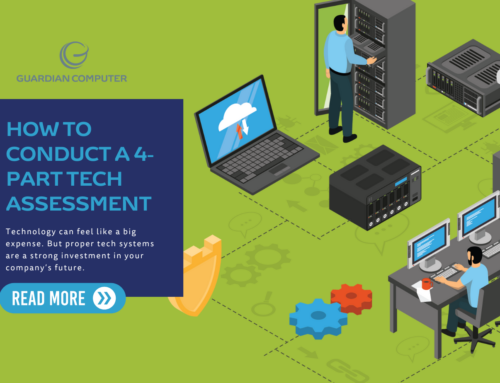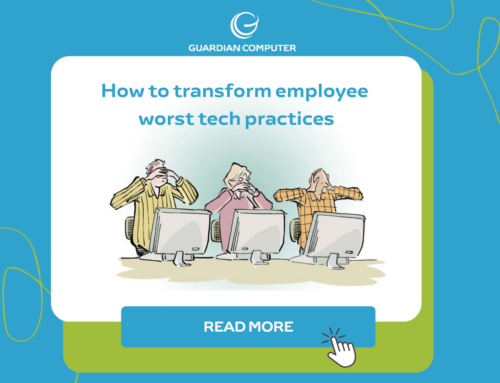Whether you’re grocery shopping, working at a coffee shop, or waiting in an airport, public WiFi is a convenient way to hop online. Unfortunately, it’s also a risky one. Hackers take advantage of the lax security and easy access that often accompanies public WiFi.
If you need to connect to public WiFi, you should take precautions to maintain the security of your device and information. A VPN, or Virtual Private Network, is one of the most common privacy measures for public WiFi usage. But many users still wonder, is it safe to use public WiFi with a VPN? Are there any risks?
While VPNs are generally considered an essential security tool for remote work and other public network usage, there are weaknesses that can still leave your work and personal data vulnerable to cybercriminals. Keep reading to learn more about using VPNs, their security benefits and shortcomings, and our expert tips for using public WiFi.
What Makes Public WiFi Risky?
On an unsecured network, hackers may be able to spy on the information you send, such as when you enter a password or credit card information on a website. They may even be able to monitor the keystrokes you make on your keyboard, allowing them to record your logins or private conversations.
Cybercriminals can also circulate malware or launch worm attacks over unsecured WiFi. Even public WiFi networks that require a password aren’t safe if that same password is readily available to anyone in the establishment, such as a coffee shop or doctor’s office.
What Is a VPN?
A VPN allows a user’s devices to connect to a private network over a public network. VPNs were created to securely connect devices within a business network to private internet servers. They allow network users to access their business network remotely from home, another office, or elsewhere using public WiFi.
How Do VPNs Work?
A VPN works by connecting your computer, tablet, or smartphone to a server, so you can go online using the server’s internet connection. The public WiFi network is only used to connect your device to the server, rather than to any of the websites or applications you subsequently access.
A VPN grants you access to a private, anonymous network, which is very appealing if you handle sensitive information. VPNs use encryption to scramble your data and make it unreadable when it’s sent over a public network.
Without a VPN, an internet service provider has access to your entire browsing history, from the websites you visit to the passwords you enter. That’s because web activity is normally associated with a local IP address. A VPN allows you to funnel your own internet traffic through a private server, so your activity is associated with that server’s IP address rather than your own. This effectively masks your location and keeps your online activity and data private.
How Safe Is It to Use Public WiFi with a VPN?
Both the Federal Trade Commission and Cybersecurity & Infrastructure Security Agency (CISA) recommend the use of VPNs while using public WiFi. Even so, many people still wonder exactly how safe it is to use public WiFi with a VPN.
Generally, a VPN is an important security measure to have in place. But there is a vulnerability that occurs at the moment you connect to a public WiFi network.
Most public networks will allow devices to automatically connect to the WiFi. However, you must open a browser to what’s called a “captive portal.” There, you manually agree to local terms of service before actually being allowed to access any websites.
Despite being connected to the internet and having a VPN, there is a gap in coverage after you connect to WiFi but before you can turn on your VPN. This brief period leaves you vulnerable to risks associated with public, unsecured networks.
Although you face risks during this vulnerable period, it is only for a very limited amount of time. Using a VPN in public is still much safer than logging onto a public network without any additional digital protection.
Do VPNs Have Additional Security Features?
As VPNs have become more popular, VPN service providers have found other ways that their services can protect your data while in public.
Some VPN services offer a feature called an “Internet Kill Switch,” for example. In the event that your VPN connection is ever interrupted or disconnected, this feature protects your device and its data from prying eyes. It works by blocking all internet-bound traffic to your device until the connection with your VPN is reestablished.
VPN clients may offer an Internet Kill Switch at a granular application level. If you are using a VPN to access particularly sensitive applications and information, this tool is incredibly valuable. At the moment a VPN disconnects, the Kill Switch would close that sensitive application and require it to be manually reopened after reestablishing a secure connection.
For those who need an additional level of security when accessing public WiFi, finding a VPN service with an Internet Kill Switch is an excellent option.
Safety Tips for Using Public WiFi
While having a VPN can bring peace of mind while using public WiFi, there are still a number of other measures you should take to keep your data safe—no matter where you are.
- Use strong passwords. No matter how secure your network is, a weak password leaves you vulnerable to hackers. Ensure that your passwords contain a healthy mix of case-sensitive letters, numbers, and other characters. Avoid including personal information, such as your birthdate or pet’s name, which can often be found on social media. Do not repeat passwords you have already used or reuse the same password for multiple accounts, or else a breach of one can compromise them all. Do not leave your password written on a sticky note on your desk or send it in plain text via email, instant message, or text message.
- Don’t leave your device signed in while unattended. It’s all too easy for a smartphone to get stolen off a desk or out of a bag. If you’re working in a public space, be aware of your surroundings and your possessions. Even in your company building, you never know if a delivery person or visitor might come across your computer while you’re in the bathroom. Log off of any device whenever you are not actively using it. Keep any portable devices you aren’t currently using in a secure case or bag within your sight.
- Turn off automatic connectivity. Some phones will automatically connect to open WiFi networks as soon as they’re in range. If your device connects to an unsecured network and you don’t immediately enable a VPN for protection, you’re leaving yourself at risk of having your information stolen.
- Enable two-factor authentication. Two-factor authentication requires two verifications before users can log into an account. In the event that your password is compromised, two-factor authentication will keep unwanted guests from accessing your account by requiring more than just that password. If an unauthorized user fails to bypass the two-factor authentication, you will be alerted. This gives you the chance to change your password and protect your private information.
- Beware of phishing. Even with a VPN in place, a successful phishing text or email can easily collect your sensitive information. A phishing message appears to be from a trusted company or individual, but is actually from a cybercriminal. It will usually ask you to visit a link, open an attachment, or confirm your identity or login information. Fast-paced communications and interactions, such as texting, can make people more prone to click on links, playing right into phishing schemes.
How to Set Up and Use a VPN
In addition to other cybersecurity best practices, using a VPN is a wise choice, whether for personal or business use. Setting one up for the first time isn’t as difficult as you might think. You have the option to set up a VPN for your entire home network or on individual devices.
Setting Up a VPN at Home
If you frequently work from home or want additional home protection, setting up a VPN for your entire home network is a good idea. This means that any device that connects to the internet at your home will be using a secure and protected network. However, adding this extra step can slow down web traffic, which may lead to longer loading times for all users.
When setting up a VPN at home, there are a few options that you can choose from:
- Get a router with VPN capabilities. Some higher end routers come with built-in VPN servers that are ready to go out of the box. If your home office is your primary office, this may be an appealing option. The process is completely automated, and your server will automatically connect all your internet devices to the VPN without the need for an additional VPN app or service. Once those devices are removed from your home network, however, they will not be protected by the VPN.
- See if your current router supports third-party firmware. Routers actually have their own operating systems, known as firmware. If you have some advanced technical skills under your belt, it’s also possible to replace your current router’s firmware with one that can support a VPN in order to secure your home’s WiFi network.
- Set up your own dedicated VPN server. To set up a dedicated VPN server, you’ll need a computer that’s on all the time, rather than a desktop you turn off when you’re done using it. This option also requires some technical ability. But if you’re a business owner, setting up a dedicated VPN server for all employees to use can be a smart choice.
Using VPN Services and Apps in Public
If you need to work at coffee shops, hotels, airports, or other public places, then VPN services and apps are a more appropriate choice for keeping your data secure. These apps download onto individual devices so that you can bring the security of a VPN with you, no matter where you are.
VPN app services are available for an annual or monthly subscription, which often varies from around $4 to $12 per month. Examples include NordVPN, TunnelBear, and ProtonVPN. These apps will typically allow a set number of devices to operate on a single VPN account, with scalable options for adding more user licenses and servers on business accounts.
Many VPN apps work with a variety of browsers and operating systems, such as Windows 10, macOS, iOS, Android, and Google Chrome. These apps offer a host of features, such as easy-to-use interfaces, good speed tests, affordability, and a number of servers located around the world for additional security.
In addition, many VPN services come with prepackaged installers. After you decide on a VPN service, setup can be relatively straightforward once the proper permissions and settings are in place.
If you own a business and are looking to get a VPN for your employees, IT professionals can set up a VPN on a variety of devices (both hard-wired and mobile) that regularly connect to your business network. Ask your IT department or managed service provider, or contact an IT company to provide this setup service.
Set Up a VPN and Improve Network Security with Guardian Computer
Guardian Computer is a full-service IT provider with over 100 years of combined experience in the tech solutions industry. We’ve worked with a wide variety of businesses to protect their data, including everything from setting up VPNs to networking services, cybersecurity, and data backup and recovery.
Our expertise means you can rest easy, knowing your IT project is professionally handled and our team is preparing your organization for potential issues before they ever become a problem. Whether you need help with a single IT project or want us to fully manage your IT, we have a wide range of services to meet your business’ unique needs. Where you see a tech headache, we see a new challenge to tackle!
Ready to talk to someone on our team? Contact us today to learn how Guardian Computer can protect your business!








[…] only do travelers often engage in risky behaviors, such as connecting to public Wi-Fi, but they also keep a huge amount of valuable data close at hand. Most people carry their […]